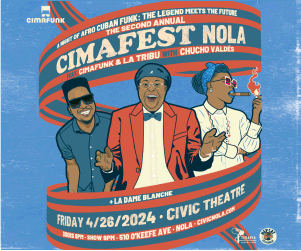This recent release from New Orleans-bred sax master Donald Harrison has received relatively little attention, probably because it’s on a European label (as opposed to Harrison’s recent “Nouveau Swing” work on Impulse). But Harrison’s landmark Indian Blues of a decade ago was also on Candid, and, like that album, Spirits of Congo Square is a gem that deserves serious notice, an insightful exploration of traditional jazz sources from a modern perspective.
Just look at a partial listing of the personnel: Nicholas Payton, Marlon Jordan and Jamil Sharif on trumpet; Delfeayo Marsalis on trombone, Louis Ford on clarinet, Victor Goines on tenor sax, Peter Martin on piano and Adonis Rose on drums. As far as next-generation New Orleans jazz talent goes, it’s cream of the crop. Moreover, this session was actually recorded in 1996, when several of these musicians, such as Payton, Martin and Goines, were just emerging nationally, so the album serves as an exciting snapshot of a particularly fertile moment in the city’s jazz evolution.
As would seem fitting for what is virtually a NOCCA reunion party, the players appear comfortable with each other and the material, but also hungry to break fresh ground. After the opening poem “And How That Rhythm,” an ode to the Crescent City read over sizzling parade beats, they sink their teeth into an interesting Joe Chambers arrangement of the Mardi Gras Indian chant “Two Way Pockey Way,” which allows for juicy modern-jazz exploration over Rose’s sublimely nuanced second-line embellishments.
This sets the tone as Harrison and his cohorts approach an unusual assortment of traditional fare (“Just A Closer Walk With Thee,” “The Second Line”), modern mainstream staples (Monk’s “Bye-Ya,” Rollins’ “Oleo,” Freddie Hubbard’s “Bob’s Place”) and two funky originals (“Don’t Drink The Water,” “Spirits of Congo Square”). They dip it all in a spicy, unmistakably New Orleanian batter before frying it up to a golden brown, eloquently reminding us that the upper echelon of Crescent City musicians can move forward and backward in time, and never lose a sense of place.




